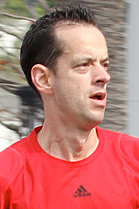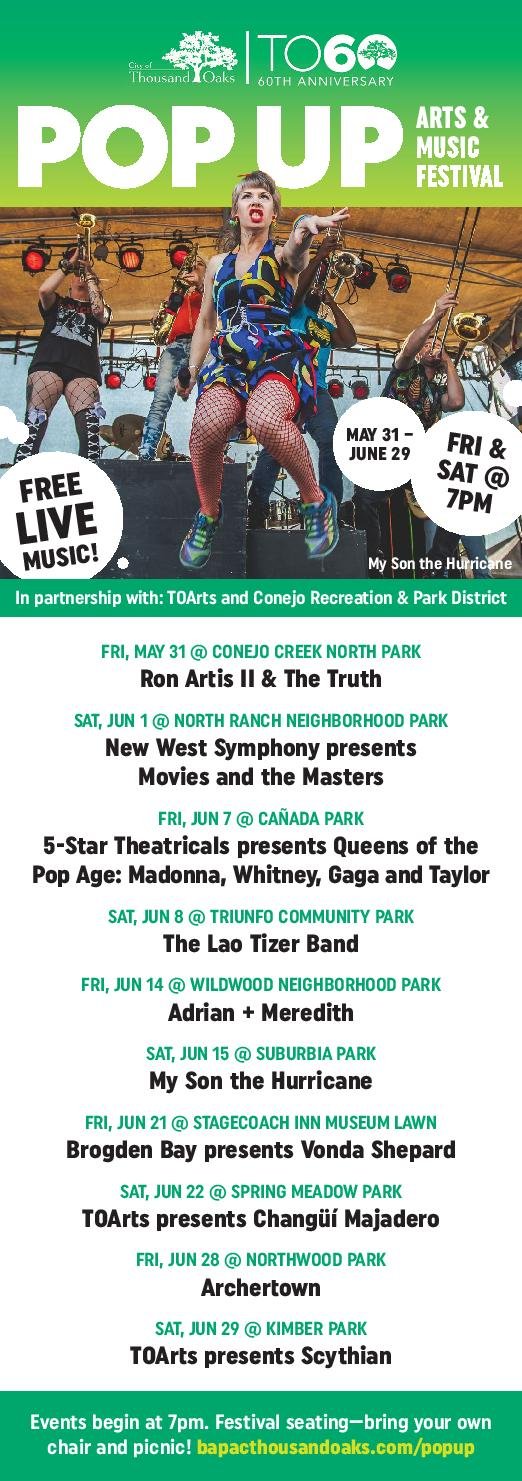Interview with John Fedoroff of Thousand Oaks, Winner of 2012 Malibu Marathon
/ John Fedoroff of Thousand Oaks demolished the course record at the 4th Annual Malibu Marathon on Sunday, November 11th. His finishing time of 2 hours, 37 minutes placed him nearly 12 minutes before the 2nd place finisher and was almost 5 minutes faster than the previous course record.
John Fedoroff of Thousand Oaks demolished the course record at the 4th Annual Malibu Marathon on Sunday, November 11th. His finishing time of 2 hours, 37 minutes placed him nearly 12 minutes before the 2nd place finisher and was almost 5 minutes faster than the previous course record.
I met John several years ago at The Oaks Mile in Thousand Oaks and was impressed by his speed. In 2011 he ran the Boston Marathon in a personal best time of 2:34:45. He had trained to run the New York Marathon on November 4th but the race was cancelled on the 2nd as a result of the aftermath of Hurricane Sandy.
John is married, has 4 kids and at age 43 is running like he is in his twenties. I figured, why not ask him about his training as perhaps we can all benefit from whatever he's doing!
1. How do you feel about your performance at the Malibu Marathon? Were you happy with your time, given the challenging course?
I ran about what I expected I was capable of running. I didn't think the course was that challenging compared to what I was expecting in New York which would have been over 2x the elevation gain. The hills toward the end of the race were a bit challenging, but I was expecting them so I made sure I had enough left in the tank to finish well.
2. Were you expecting to win the race? At what point did you know you were going to win? Was there any point in the race where you felt any self doubt?
A couple of days before the race, I spoke with Blue Benadum (the Malibu Marathon race director who placed third in the Santa Barbara Marathon the day before in an impressive 2:28) who warned me that I would probably be running by myself. I wasn't necessarily looking forward to running by myself, but I just thought of it as a training run with aid stations. My goals were to win the race, run a course record and try to run as close to six-minute pace as possible.
There was a point at about mile five where I thought I might not be able to finish because my hamstring started acting up. I thought, "Oh no, this would be embarrassing--dropping out of a marathon at mile six," but I was able to relax just a bit and the pain went away. Half the battle, as you well know, is getting to the start of the marathon in one piece.
I had several setbacks during the final weeks of this marathon build up. It started with a groin strain during a 20-miler I ran the day after running a cross country race with the kids I help coach. I learned it's not a good idea to run 20-milers the day after a race. As soon as I started getting over the injury I ended up catching a cold which set me back another couple of days. As soon as I was well enough to run I went out with the kids on a 10-miler and got hit by a car! I had to take a few days off of running to allow my knee to heal.
As soon as I was ready to get back to the marathon training I went out and bought some racing flats to try out on a 15-mile marathon pace run. The problem was that the shoes were a bit too small and I developed blisters on the ends of my big toes. Unfortunately, I developed a strep infection and had to take two different antibiotics to get over the infection and I had to have my toenails removed.
Thankfully, I still had about two weeks before the NYC Marathon so my toes had time to heal. After all of the travel to New York I returned home feeling exhausted, but still wanted to run a marathon so I decided to run one last tempo run. Unfortunately, I didn't warm up properly and felt a strain in my hamstring which took several days to recover from. As any master's runner knows, running at this age is mostly about managing injuries.
[Editor's Note: HOLY %^&*!! And I thought I had a lot of setbacks in my training! Wow!]
3. The marathon started over half an hour late this year. What goes through your mind when this happens and how do you deal with a change in plans like this, both mentally and physically?
4. Speaking of change in plans, where were you when Mayor Bloomberg cancelled the 2012 New York Marathon on Friday, November 2nd, what went through your mind, and how did you end up choosing Malibu?
I was in a toy store in Montclair, New Jersey with my family when I received a call from my friend telling me about the marathon being cancelled. It was a hard thing to hear and at first I didn't want to believe it was true. So much time and effort--not to mention the travel expense--goes into preparing for a marathon that it makes it hard to think about things rationally. My thinking was that since they ran the marathon after 9/11 that they would run this year as well. However, it was just too soon for a lot of people. It was a sad time to be in New York and we returned home sooner than we had planned. I still wanted to run a marathon, but found that all of the big races had filled up. After all of the travel I felt it was best to run a local race. I couldn't run Santa Barbara because of a conflict with high school cross country CIF prelims at Mt. SAC, so I decided to contact Blue to see if he could get me into Malibu.
5. You ran a fantastic time at Malibu. Can you give us mortals some training advice...how about the most important things you did in your training?
I try to follow the Jack Daniels approach to running which breaks up training into four phases. The first is the Foundation/Injury-Prevention (F/I) phase where you just build up your miles by running easy. The second phase, called Early Quality (EQ), involves short repetitions (200s/400s) at mile race pace with long rest to work on running economy. The third phase called Transition Quality (TQ) is the most difficult phase where you run longer intervals (1000s/1200s) at 5K race pace with equal rest based on time. Lastly, there's the Final Quality (FQ) phase which focuses on race-specific workouts which for marathon training involve a lot of tempo runs and marathon pace workouts. I try to get my miles up to about 70-80 miles per week during the F/I phase so that my body can handle the more demanding phases to come. Daniels says that it's important to know what the purpose is for every run. Before I read his book, Jack Daniels' Running Formula, I really didn't understand how to prepare for a marathon other than just go out and run. I don't always follow the plan exactly because of injuries or other interruptions, but I know how to get in the necessary work so that when I step on the line I am confident that I can run my goal pace for 26 miles. Probably, the most important aspect of marathon training can be distilled down to just one word...consistency.
6. Some specific training questions: What is your peak weekly mileage, how many long runs did you do prior to the marathon, do you do any speedwork, how often do you take rest days and how long was your taper for the marathon?
For this marathon build-up I think I got up to 90 miles once, but I usually just try to hit 70 miles per week. I always hope to do more, but injuries, etc. seem to get in the way. I got in about six long runs ranging from 16-20 miles in the final three months leading up to the race. I definitely try to get in speed work in preparation for the marathon. If you want to run fast you need to run faster than marathon pace in your workouts. It's not always fun especially when you are training by yourself, but if you can workout with some runners that are close to your ability it's much easier to finish the workouts. A typical week consists of a long run on Sunday followed by two or three rest days then an interval workout followed by another two or three easy days and then a long tempo or marathon pace workout. I'm not a big fan of the long taper because my immune system lets down when I back off the training, so I usually just taper for one week. However, I was forced to taper two weeks due to the cancellation of the NYC Marathon. I actually felt like I was ready for a faster race on less rest a week before Malibu.
7. You are a self-employed graphic artist with a wife and 4 kids - how do you balance your training with work and family?
The short answer would be I don't--if you have figured it out please let me know! Unfortunately, all of these other areas in my life take a hit because of my obsession with running and yet, running has helped keep my life moving forward. I can get down sometimes when the business isn't going well or a family relationship is strained, however the very act of just putting one foot in front of the other keeps up the forward momentum.
One of my favorite verses from the Bible is found in Philippians which says, "…one thing I do: forgetting what lies behind and reaching forward to what lies ahead, I press on toward the goal for the prize of the upward call of God in Christ Jesus." Probably the best thing that has come out of running is that it can be an inspiration to others.
My wife, Adriana has been running for about a year now. Also, our daughter Bella started running cross country at Oaks Christian High School this past season and made some really good friends along the way. Our oldest son, Nathan just finished his first season of cross country with the Newbury Park youth cross country team. He's really gotten into running this past year. For example, he had an assignment in his 5th grade class to write a famous person and he chose one of America's greatest marathoners. He was so excited when he received a handwritten full-page letter from Ryan Hall a couple of weeks later. Lastly, our boy Xander said the "R" in his name stands for "Runner" in a recent school project (hey, it's a start!) and our youngest boy, Christian considers himself the fastest runner in the family because he's beaten me in a couple of "races" down our street.
Thank you so much, John, for sharing such great advice and inspiration! I think any runner will find your advice quite useful. Keep us posted on your next big race!


